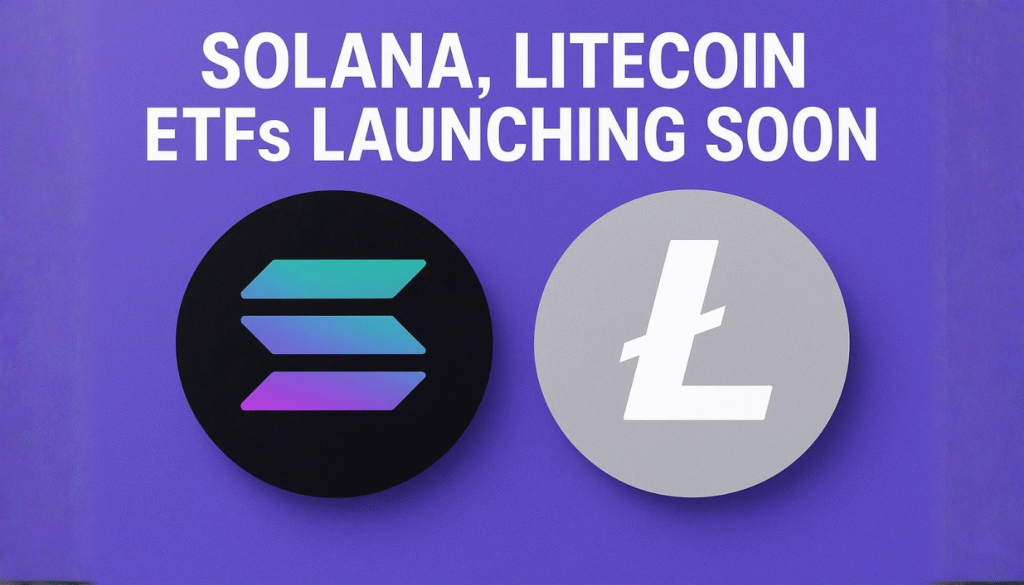The cryptocurrency ETF market is set for a major expansion this week as four new token-based funds prepare to debut on major U.S. exchanges. The Bitwise Solana Staking ETF (BSOL), Canary Litecoin ETF (LTCC), and Canary HBAR ETF (HBR) are slated to begin trading Tuesday, followed by the Grayscale Solana ETF (GSOL) launching Wednesday, according to Bloomberg ETF analysts.
The launches come amid regulatory gridlock in Washington, with the U.S. Securities and Exchange Commission (SEC) still partially affected by the ongoing government shutdown. However, language embedded in recent filings is allowing these ETFs to move forward without direct SEC sign-off.
Key listing approvals include:
- NYSE Arca: Bitwise Solana Staking ETF (BSOL)
- Nasdaq: Canary Litecoin ETF (LTCC) and Canary HBAR ETF (HBR)
- Form 8-A filings: Confirmed under the 1934 Securities Exchange Act
Bloomberg’s Eric Balchunas confirmed that the ETFs are cleared to begin trading on October 28 and 29, marking another milestone in the ongoing institutional adoption of digital assets.
SEC Filings Enable Automatic Effectiveness
The ETFs’ rollout stems from strategic amendments in the issuers’ S-1 filings, which contain a clause allowing automatic effectiveness 20 days after submission. This mechanism activates even during lapses in SEC operations—such as the current shutdown—eliminating the need for explicit approval.
The Form 8-A filing, a procedural step under the 1934 Act, formally registers ETF shares for public trading. Bloomberg ETF analyst James Seyffart noted that this week’s launches are a direct result of language introduced by the SEC’s Division of Corporate Finance in a recent guidance memo.
Industry observers say the approach demonstrates how ETF issuers can navigate administrative bottlenecks to maintain momentum in the rapidly growing digital asset sector.
Legal and Market Implications
While the filings are compliant, some legal experts have warned of potential risks. Corporate attorney Scott Johnsson cautioned that skipping the traditional “delaying amendment” process—standard for most ETF approvals—could expose issuers to stop orders or fraud scrutiny once government operations resume.
Nonetheless, Canary Capital CEO Steven McClurg described the event as “a natural evolution” following Ethereum-based ETFs. “Litecoin and Hedera are the next two token ETFs to go effective after Ethereum,” he said, expressing confidence in tomorrow’s launches.
With Solana (SOL), Litecoin (LTC), and Hedera (HBAR) ETFs entering the market, analysts expect increased retail and institutional participation. The debut signals a growing acceptance of diversified crypto investment vehicles, even in an uncertain regulatory climate.
As digital assets mature, this week’s ETF wave could redefine how traditional investors access blockchain exposure—ushering in a new era for mainstream crypto finance.


